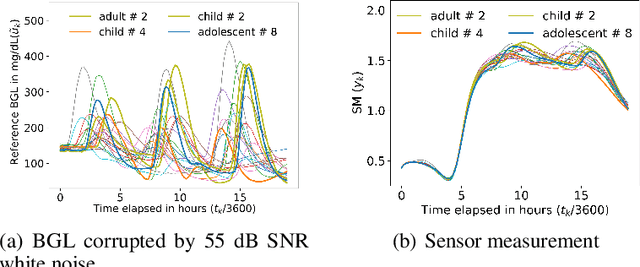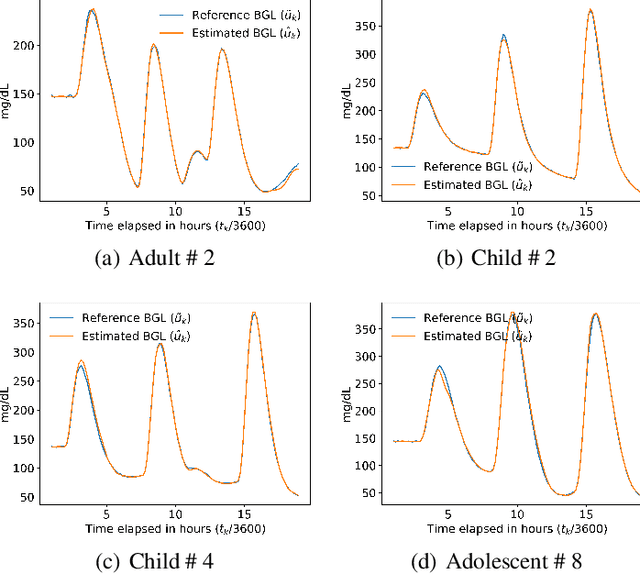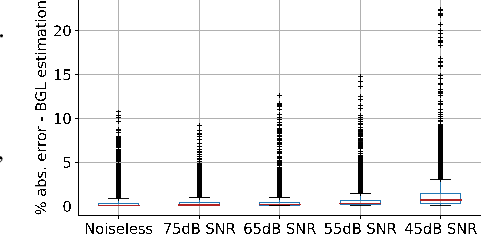Dynamic Calibration of Nonlinear Sensors with Time-Drifts and Delays by Bayesian Inference
Paper and Code
Aug 29, 2022



Most sensor calibrations rely on the linearity and steadiness of their response characteristics, but practical sensors are nonlinear, and their response drifts with time, restricting their choices for adoption. To broaden the realm of sensors to allow nonlinearity and time-drift in the underlying dynamics, a Bayesian inference-based nonlinear, non-causal dynamic calibration method is introduced, where the sensed value is estimated as a posterior conditional mean given a finite-length sequence of the sensor measurements and the elapsed time. Additionally, an algorithm is proposed to adjust an already learned calibration map online whenever new data arrives. The effectiveness of the proposed method is validated on continuous-glucose-monitoring (CGM) data from an alive rat equipped with an in-house optical glucose sensor. To allow flexibility in choice, the validation is also performed on a synthetic blood glucose level (BGL) dataset generated using FDA-approved virtual diabetic patient models together with an illustrative CGM sensor model.
 Add to Chrome
Add to Chrome Add to Firefox
Add to Firefox Add to Edge
Add to Edge